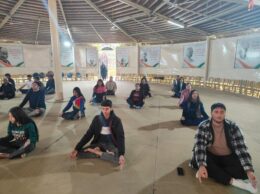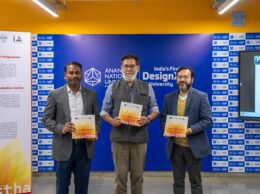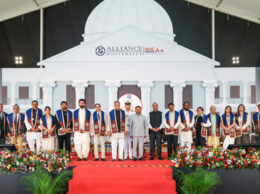CHENNAI : Indian Institute of Technology Madras and Indian Institute of Technology Kanpur researchers are conducting a study to find out the appropriate policy instruments that can help India to reduce lead pollution. The research groups joined forces to look collectively at the problem of lead recycling in India as lead pollution can harm the mental and physical health of people and can contaminate the environment.
The workers who recycle lead in an informal setting break the lead-acid batteries in a fashion causing spillage of acid and lead dust in the soil and surroundings. Also, the lead is melted in open furnaces due to which poisonous gases reach the air. This way of lead recycling is not only harmful to the environment but also the health workers engaged in the recycling process.
However, the low operational cost of this manoeuvre makes it still an attractive choice. The presence of the informal sector and its undesirable consequences are more predominant in developing countries where the costs and lenient regulations and laws have helped the unregulated sector to grow at a faster pace.
The study suggested that the policy guidelines such as reducing the tax on the regulated recycling sector and providing subsidies to regulated recycling and remanufacturing sectors reduce lead pollution from lead-acid battery recycling. Another important finding was that a very high subsidy to the formal remanufacturing sector can lead to the shutting down of both regulated and unregulated recycling sectors.
The Research Team included Dr. R K Amit, Professor, Department of Management Studies, IIT Madras, Dr. B Vipin, Assistant Professor, Department of Industrial & Management Engineering, IIT Kanpur, Dr. Janakarajan Ramkumar, Professor, Department of Mechanical Engineering, IIT Kanpur, and Mr. Brahmesh Vinayak Joshi from IIT Kanpur. The team published the results of their work in the esteemed international research journal Resources, Conservation and Recycling.(https://doi.org/10.1016/j.resconrec.2021.105528)
Elaborating on the importance of research on lead pollution, Prof. R K Amit, Department of Management Studies, IIT Madras, said, “The insufficiency of primary lead sources to satisfy the demand makes the recycling of used batteries necessary. However, the unscientific way of recycling by the unregulated sector poses serious environmental and health threats due to the high amount of lead excretion. We studied to quantitatively assess the impact of different policy instruments on shifting the recycling business from unorganized to the organized sector in India.”
A report by UNICEF titled ‘The Toxic Truth: Children’s exposure to lead pollution undermines a generation of potential’ estimated that approximately a third of the world’s children, including 27.5 crores of Indian children, have higher exposure to lead as their blood lead levels have 5 micrograms per deciliter or more – levels which are hazardous to their health. Though high lead levels are equally harmful to grown-ups, the high levels of lead in children are known to reduce IQ, decrease attention span, cause anaemia, kidney and liver disorders, among other issues in children.
In their publication, Mr. Brahmesh Vinayak Joshi, Dr. B Vipin, Dr. Janakarajan Ramkumar, and Dr. R K Amit assessed the impact of policies such as reducing the tax on regulated recyclers, subsidies to organized recyclers and formal battery remanufacturers on the performance of battery recycling to name a few. The researchers used a system dynamics model to explore the implications of economic policies quantitatively on the recycling of used lead-acid batteries.
Further Prof. R K Amit added, “From the implementation point of view, the policymakers can consider the results of this study to frame policies and rules for the LAB recycling activity in India. As a natural course of future research, the implication of these policies on the social dimension, in terms of job loss in the unorganized sector and possible ways through which the unorganized sector’s workforce can be integrated with or relocated to the organized sector will be explored.”
Lead is used in various industries such as paints, cosmetics, dyes, ammunition, and jewellery, among numerous others, but the battery sector remains the major consumer of this metal by utilizing 85 per cent of the production. Several rules on battery waste management, handling and recycling have been put in place at appropriate times by the respective countries to handle the lead pollution.
Recycling was put forward as a good way to deal with the scarcity of metal and to handle the accompanying pollution. However, the proper recycling of lead is still a concern and it is lagging due to mushrooming of the unregulated battery recycling sector alongside the regulated ones.









